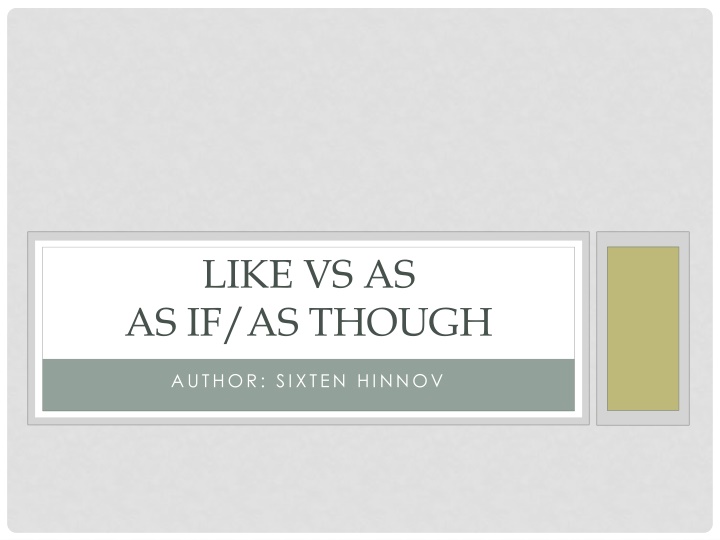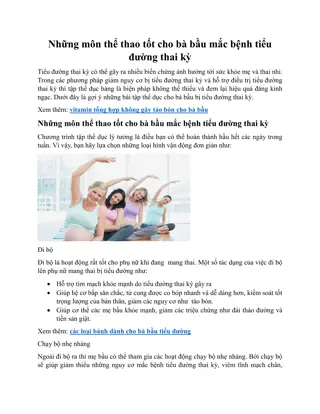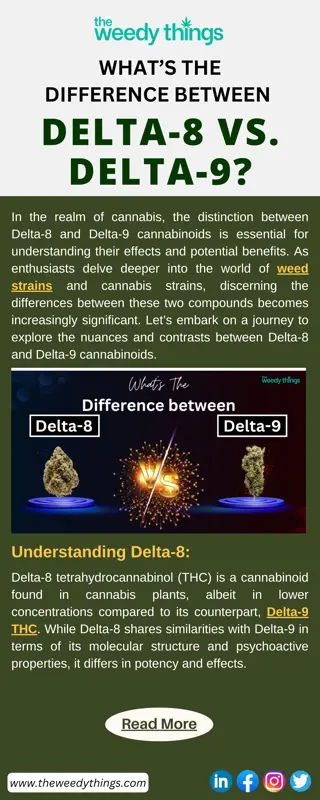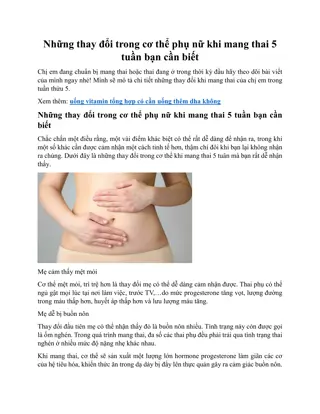The Difference Between Like, As, As If, and As Though
Explore the nuances of using "like," "as," "as if," and "as though" correctly in English. Learn how each word functions as a preposition, conjunction, and more through practical examples and clear explanations. Practice your understanding with exercises provided in the resources linked.
Download Presentation

Please find below an Image/Link to download the presentation.
The content on the website is provided AS IS for your information and personal use only. It may not be sold, licensed, or shared on other websites without obtaining consent from the author.If you encounter any issues during the download, it is possible that the publisher has removed the file from their server.
You are allowed to download the files provided on this website for personal or commercial use, subject to the condition that they are used lawfully. All files are the property of their respective owners.
The content on the website is provided AS IS for your information and personal use only. It may not be sold, licensed, or shared on other websites without obtaining consent from the author.
E N D
Presentation Transcript
LIKE VS AS AS IF/AS THOUGH AUTHOR: SIXTEN HINNOV
LIKE 1) Like can be a preposition meaning similar to or in the same way as. Ex: Like John, I hate cooking. 2) We use the question What . like? We ask for a description of a person or thing etc. Ex: What is the restaurant like? 3) Like can mean such as/for example. Ex: Let s buy him something nice like a CD. 4) feel like + object/-ing is used to talk about something that we want or want to do. Ex: I feel like (eating) some crisps.
LIKE 5) seem/sound/look like + object is used to introduce an idea we may not be completely sure about. Ex: It seems like a good idea. 6) Like is not used before an adjective on its own. Ex: They seem happy. It feels cold. SPOKEN LANGUAGE Like can be a conjunction, followed by subject + verb. Ex: Like I said, he s a really nice guy.
AS 1) As can be a prepositon, coming before the name of a job or a role, or to describe the purpose of something. Ex: She works as a doctor. I think of her as my best freind. 2) As can be a conjunction, followed by subject + verb. Ex: I ll do as we agreed earlier. As I said, he s a really nice guy.
AS IF/AS THOUGH As if/as though are conjunctions followed by subject + verb. They are followed by the present or present perfect tense when referring to something likely. Ex: It looks as if it s going to be a nice day. SPOKEN LANGUAGE! It looks like it s going to rain. To show that something is imaginary or unlikely, they can be followed by the past tense. Ex: He looks as if he had seen a ghost!
PRACTISE! https://www.perfect-english-grammar.com/as-and- like-exercise-1.html https://www.tolearnenglish.com/exercises/exercise- english-2/exercise-english-110532.php https://www.grammar.cl/Games/Like_vs_As.htm https://www.grammarbank.com/as-if-as- though.html
REFERENCES FOR THE PICTURES https://www.slideshare.net/indahgokilnimuet/the- use-of-as-if-or-as-though http://canacopegdl.com/synonym/as-though.html





















